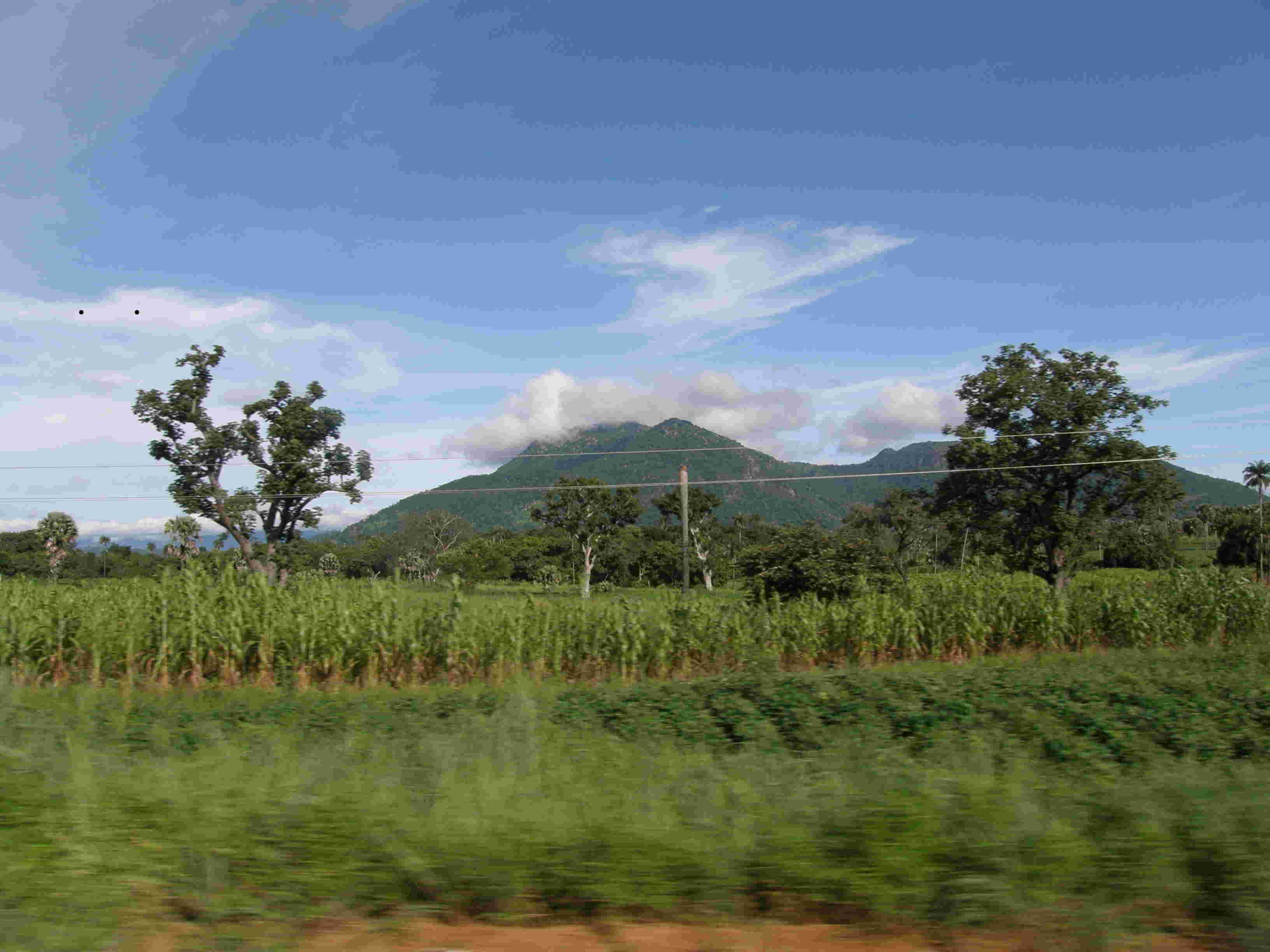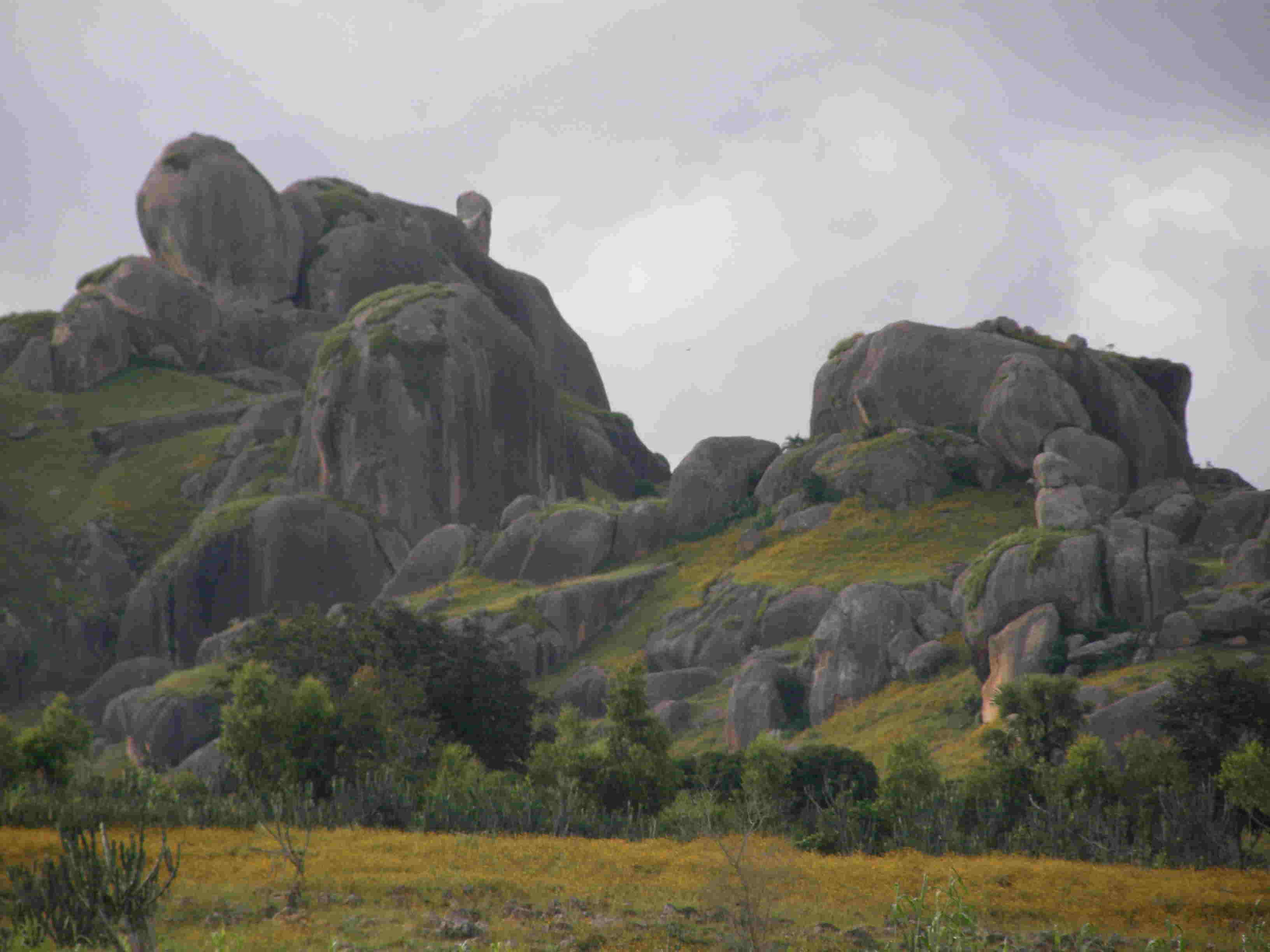 Rising up to the Plateau and a change of scenery
Rising up to the Plateau and a change of scenery
A very early start was needed to get to Jos. We had to be packed and ready to set off at 7.00am. The mosquito nets came down a lot easier than they went up and Samson was on hand to make sure that we didn’t forget anything. The Hotel owner and all of the staff appeared to see us off and we didn’t escape the protocol even at 06.30 when the proprietor made a speech about hotel standards, honest staff and good quality guests. We tipped well especially to Samson, remembering that a little of what we have goes a long way in Nigeria.
It was easier to load the cars this time and as we left everyone lined the driveway to say goodbye.
The early start would get us well on the way and we stopped for breakfast at about 10.00am having covered about 200km on fairly good roads, at a Diocesan Centre at Markurdi in Benue State. The facilities at the diocesan centres are some of the best in the country. Even so, they are quite primitive in terms of “rest rooms” but they are clean and the dining facilities are good. We were hungry by the time we arrived and we had French toast and omelettes, bread and marmalade and coffee. Well set up for the rest of the journey I looked forward to ascending the escarpment that would take us into Plateau State and to Jos.
Although we were still in the tropics the rise up the slope of the plateau gave rise to slightly cooler temperatures and a change in natural vegetation. The tropical rainforest gave way to parkland and savanna grasslands. It is a geographers dream to make this transition so I was very happy staring out of the car window, although I admit to waking Isabella and Katie up to see this as I knew it may well be the only time in their lives that they would see this and it is on the geography GCSE specification! The range of crops grown was increasingly diverse, cassava, palm oil and yams were still grown but with increasing altitude potatoes, beans and other fruits & vegetables including melons, peppers and tomatoes were evident. We saw cattle for the first time and as usual goats were very prevalent. The houses in the villages were a bit more substantial and overall the landscape indicated a little more prosperity. The rock formations were amazing, and typical of a volcanic area with later sedimentary deposits. Here endeth the geography lesson but I hope you will all appreciate how happy I was to observe this landscape.
 Rising up to the Plateau and a change of scenery
Rising up to the Plateau and a change of scenery
Rock Formations

The journey was safe but slow as we had to negotiate safe passage past many heavy lorries that ply this route frequently.
One experience that had a big impact on me was crossing the railway, built and well maintained by the former colonial rulers, the British, but now in total disrepair owing to lack of investment. What a waste of a major resource and vital piece of infrastructure. The present government is supposed to be investing £26 million to regenerate the railway, I hope this comes to fruition as the country really needs it especially when one considers the state of the roads, the HGVs and the wider issues of climate change. It was after 6.00pm when we reached Jos and we could feel the excitement of Peter and Amadu as we approached their home city and their families. We were met at the Diocesan Centre by Alex Gray the Head of the CAFOD Office in Jos and a new adventure began.
Elaine